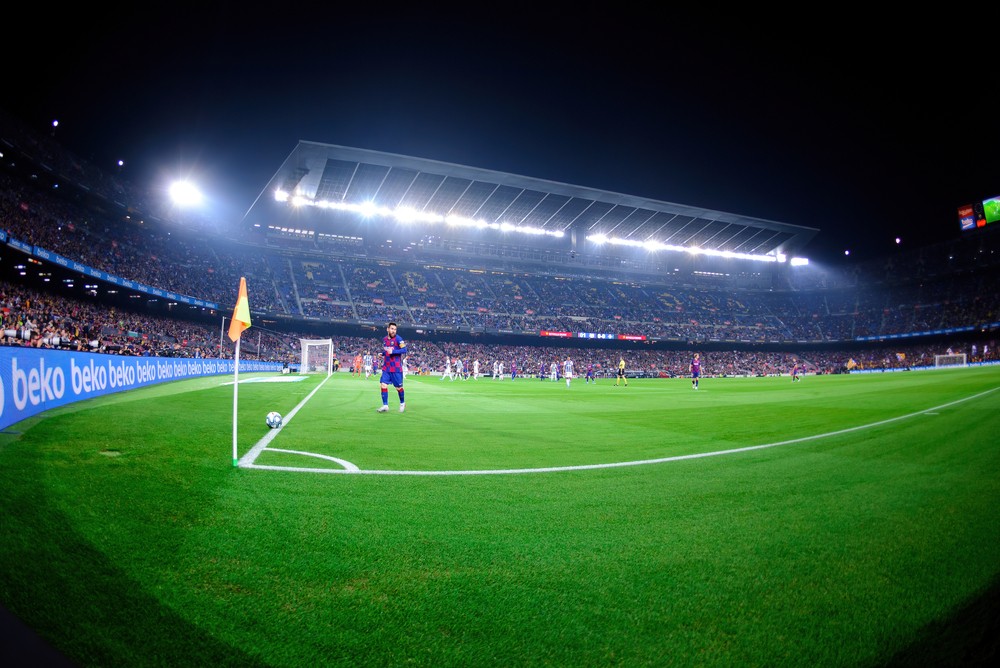LaLiga, Spain’s leading football competition, is using Databricks’ Lakehouse platform to boost performance on and off the pitch, delivering unprecedented sporting insights whilst also offering more personalised experiences for fans and changing the way people engage with the sports they love.
In order for sports organisations to digitally transform, the ability to perform Artificial Intelligence (AI) and Machine Learning (ML) on an increasing mass of structured and unstructured data is paramount. The data science team at LaLiga Tech, the technology arm of LaLiga, recognises this challenge and is pioneering new ways to place data at the heart of LaLiga as well as its global array of clients.
A lakehouse architecture is the foundation for its data strategy and cuts away at complexity. It allows LaLiga to access its data in a single data lake and perform AI, ML and BI on a single platform. This empowers the LaLiga Tech team to access data, create models and create statistical valuations just with one click rather than having to spend a lot of time extracting and downloading data from various databases.
The lakehouse ecosystem has been so pivotal for LaLiga, that in 2021 it launched LaLiga Tech as a separate commercial entity, bringing together all the technical solutions of LaLiga and offering the same tools to the sports, media and entertainment industries.
Guillermo Roldán, head of the architectural department at LaLiga Tech comments, “We are creating a world where data informs almost every aspect of how sports are played and experienced. The Databricks Lakehouse platform has been transformative not just in our ability to analyse game-play, but it has also been part of the foundation of the whole LaLiga Tech business which is democratising data for the whole industry. Our ecosystem of digital services is not just changing football, but other sports around the world as well as leading media companies. I think we are just at the tipping point of what can be achieved with data and AI.”
The data team at LaLiga Tech is using data and AI in three core areas:
Match statistics and in-play analysis: Each club’s stadium in LaLiga has multiple optimal cameras that capture each match in high definition. This allows the team to track the movement of the player and the ball. Each camera shoots 25 frames per second which is around 300,000 frames per match, with each frame having a dozen variables. The data team uses two main types of data, one called ‘Eventing’ which are things like passes, shots on goal and tackles. Data is also extracted from the tracking of the ball captured on the video image. This wealth of information, available through the Mediacoach tool, allows club data scientists to view real-time tactical insights, perform detailed pre- or post-match analysis or even predict player injuries before they occur. As well as delivering this information to clubs, LaLiga Tech’s data scientists investigate new ways to visualise this information for broadcast audiences. A recent example is the ‘Goal Probability’ metric that is now shown within goal replays during televised matches.
Global Fan engagement: LaLiga Tech has grouped all technology platforms together under a single ecosystem, using single sign-on and telemetry to create a 360 degree view of fans, capturing first-party data to help create tailored campaigns and more personalised experiences.
Analytics at scale and real-time collaboration: The data team synchronises unstructured, semi-structured and structured data together at scale and without the need to sacrifice performance. It can run ML models that work from gigabytes to terabytes of data, all in one environment, all over the world and in real-time.
Rafael Zambrano, head of data science, LaLiga Tech concludes, “Working with Databricks has completely changed our ability to access data through one unified environment, enabling ML at scale unlike ever before. We see a future where sport can use data to enrich the experience of clubs, players and fans and power new growth opportunities. I believe that Databricks can help us realise that future.”




